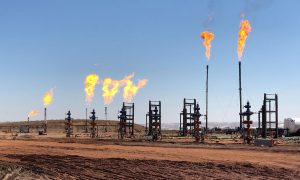
Claiming its plan would have a “marginal” affect on oil and gas production, the EPA on Friday released a proposed new fee on methane emissions from the oil and gas industry—-fees the agency contends will force production companies to move faster to reduce leaks of the greenhouse gas.
What does it involve? As much as $1,500 a metric ton in 2026, a price that was mandated by Congress as part of the 2022 Inflation Reduction Act, reported Bloomberg. But the final fee will be decided by the Environmental Protection Agency.
In its release on Friday, the EPA estimated its proposed fee program would not decrease oil and gas production by much at all, perhaps 0.03% in 2026 for natural gas production, a move that would increase natural gas costs by less than 1%. The agency further estimated the fee program would stop the release of nearly 96,000 tons of methane by 2035.
EPA Administrator Michael S. Regan was quoted in the release as saying the new fee structure is part of “a comprehensive strategy to reduce wasteful methane emissions that endanger communities and fuel the climate crisis.”

He believes the program will “incentivize industry innovation and prompt action.”
The American Petroleum Institute had a slightly different view.
American Petroleum Institute officials are lobbying Congress to repeal the fee.
“While we support smart federal methane regulation, this proposal creates an incoherent, confusing regulatory regime that will only stifle innovation and undermine our ability to meet rising energy demand,” said Dustin Meyer, API’s senior vice president of policy in response to the EPA plan.
“As the world looks to US energy producers to provide stability in an increasingly unstable world, this punitive tax increase is a serious misstep that undermines America’s energy advantage.”




